
The Enchanting Charm of Lions Square
Lions Square, officially known as Eleftheriou Venizelou Square, is the beating heart of Heraklion, Greece. This iconic square is celebrated for its majestic Morosini Fountain, a Venetian marvel featuring intricately carved lion statues that have stood the test of time. As you stroll through the square, you'll be enveloped by a blend of historic charm and vibrant modern life. The square is surrounded by an array of cafes, restaurants, and shops, making it a perfect spot for people-watching while indulging in a cup of Greek coffee or a delicious meal. The bustling atmosphere is both lively and welcoming, offering a genuine taste of Cretan hospitality. Lions Square is also a gateway to Heraklion's rich cultural heritage. Nearby, you can explore the Heraklion Archaeological Museum, home to an extensive collection of Minoan artifacts. Just a short walk away, you'll find the historic Venetian Loggia and the bustling 25th August Street, lined with shops and more historical sites. Whether you're a history buff, a foodie, or just looking to soak up the local ambiance, Lions Square is a must-visit destination.
Local tips in Lions Square
- Visit early in the morning or late in the afternoon to avoid the crowds and enjoy a more relaxed atmosphere.
- Try the local delicacies at the surrounding cafes and restaurants for an authentic Cretan culinary experience.
- Don't miss the nearby Heraklion Archaeological Museum to delve deeper into the island's rich history.
- Wear comfortable shoes as the area is perfect for walking and exploring nearby attractions.
- Carry a bottle of water, especially during the hot summer months, to stay hydrated while exploring.
The Enchanting Charm of Lions Square
Lions Square, officially known as Eleftheriou Venizelou Square, is the beating heart of Heraklion, Greece. This iconic square is celebrated for its majestic Morosini Fountain, a Venetian marvel featuring intricately carved lion statues that have stood the test of time. As you stroll through the square, you'll be enveloped by a blend of historic charm and vibrant modern life. The square is surrounded by an array of cafes, restaurants, and shops, making it a perfect spot for people-watching while indulging in a cup of Greek coffee or a delicious meal. The bustling atmosphere is both lively and welcoming, offering a genuine taste of Cretan hospitality. Lions Square is also a gateway to Heraklion's rich cultural heritage. Nearby, you can explore the Heraklion Archaeological Museum, home to an extensive collection of Minoan artifacts. Just a short walk away, you'll find the historic Venetian Loggia and the bustling 25th August Street, lined with shops and more historical sites. Whether you're a history buff, a foodie, or just looking to soak up the local ambiance, Lions Square is a must-visit destination.
Iconic landmarks you can’t miss
Morosini Fountain
A Venetian-era fountain in Heraklion's heart, the Morosini Fountain blends history, art, and culture in a vibrant city square. A must-see landmark!
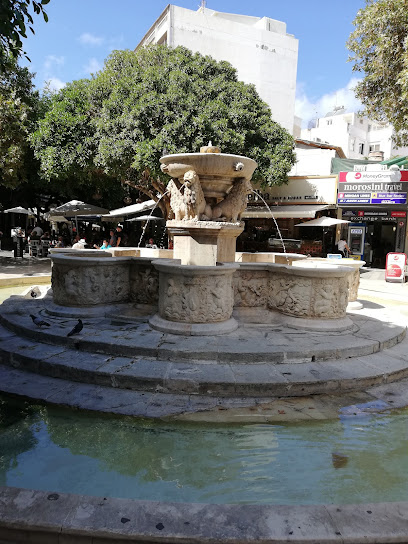
Venetian Loggia
Admire the Venetian Loggia in Heraklion, a stunning architectural gem that reflects Crete's rich Venetian heritage and now serves as the Town Hall.
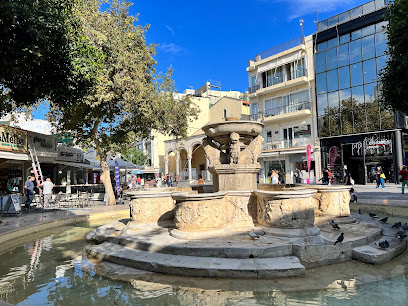
Kornarou Square
Discover Kornarou Square in Heraklion: where Venetian fountains meet Ottoman history, in a vibrant hub of Cretan culture and local life.
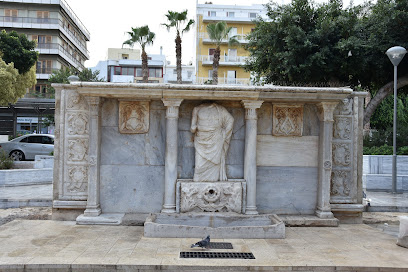
Statue of Erotokritos
A tribute to Crete's epic love story, the Statue of Erotokritos captures the romance and valor of the timeless poem in the heart of Heraklion.
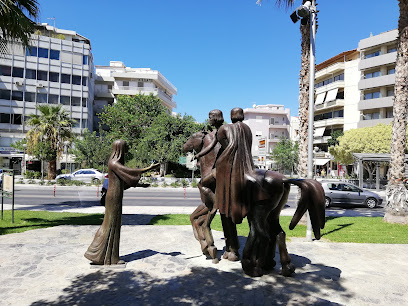
Herakleion Unknown Soldier Statue
A poignant tribute to the fallen, the Unknown Soldier Statue in Heraklion offers a space for reflection in the heart of Crete's capital.
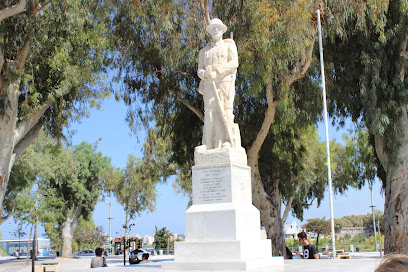
Fountain
A modern fountain in Heraklion's harbor, offering a refreshing contrast to the area's rich maritime history and Venetian-era dockyards.
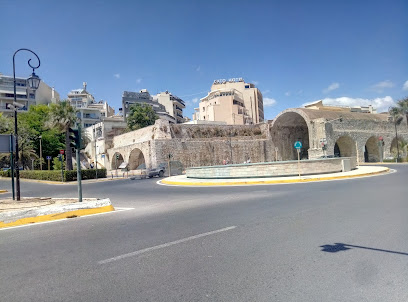
Statue of El Greco
A monumental tribute to El Greco in Heraklion, celebrating the legacy of Crete's most famous artist in a vibrant cultural setting.
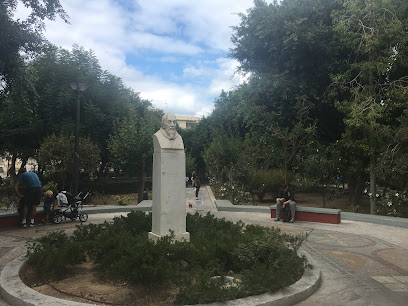
Plaque of Major Michael Tzoulakis
Honoring Major Michael Tzoulakis, a hero of the Battle of Crete, this plaque stands as a symbol of courage and sacrifice in Heraklion.
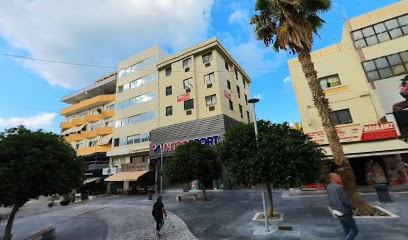
Lions Square
Experience the heart of Heraklion at Lions Square: a vibrant hub of history, culture, and Venetian charm, anchored by the iconic Morosini Fountain.
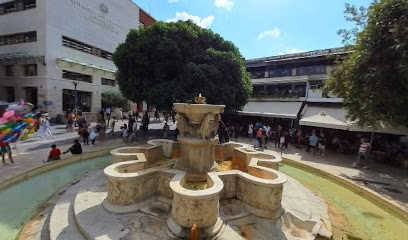
Lion Square
Experience the vibrant heart of Heraklion at Lion Square, a historic Venetian landmark and bustling hub of Cretan life.
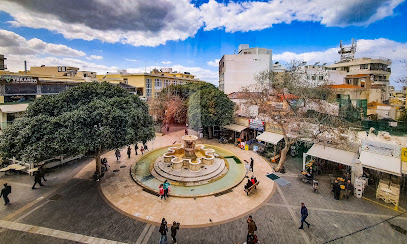
Essential places to dine
Peskesi
Discover authentic Cretan flavors at Peskesi in Heraklion—where tradition meets modern culinary artistry.
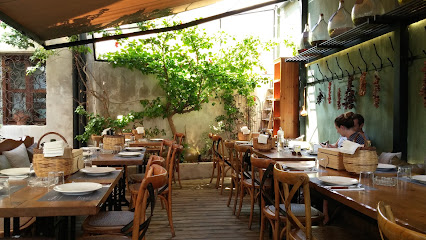
Apiri greek_eatery
Experience authentic Mediterranean flavors at Apiri Greek Eatery in Heraklion - where every dish tells a story.
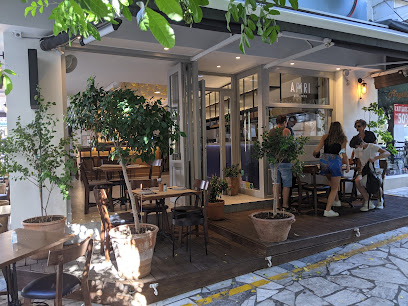
Amalia's Kitchen
Experience authentic Greek cuisine at Amalia's Kitchen in Heraklion - where every meal tells a story of local flavors.
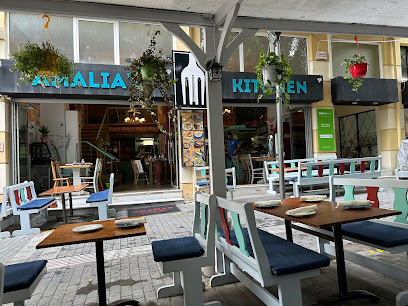
Veranda
Discover Veranda: A culinary gem in Heraklion offering exquisite meals and delightful drinks in a vibrant setting.
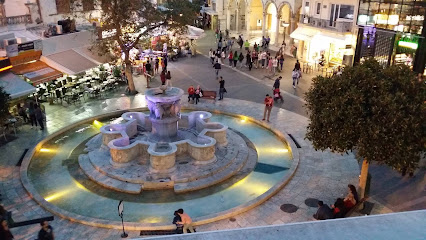
Ntoré Gastronomy
Discover the flavors of Crete at Ntoré Gastronomy in Heraklion – where every dish tells a story.
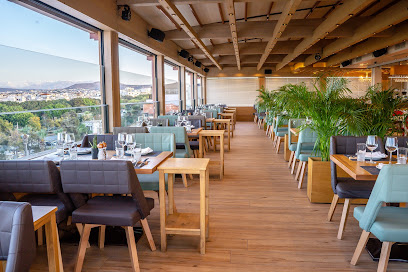
The Fifty
Experience exceptional dining at The Fifty in Heraklion—where local flavors meet international cuisine in an inviting atmosphere.
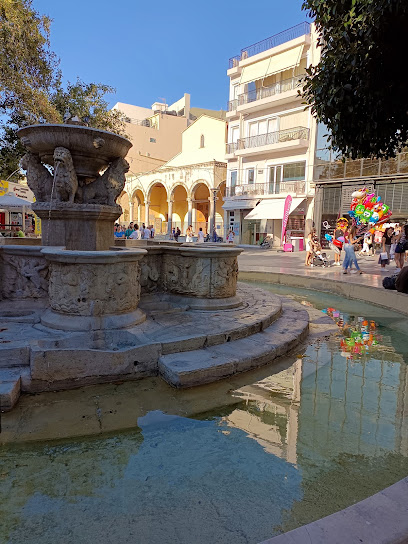
The chickpea
Discover authentic Mediterranean flavors at The Chickpea in Heraklion—where fresh ingredients meet traditional Cretan hospitality.
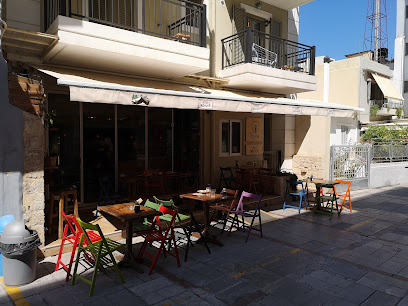
Veneto
Savor the flavors of Greece at Veneto, Heraklion's premier destination for authentic Greek dining experiences.
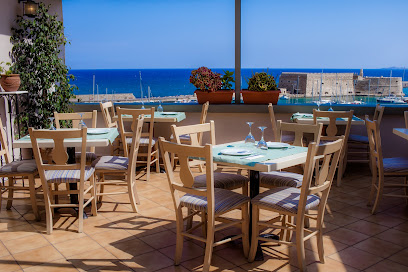
Olive Trees Restaurant
Discover authentic Cretan cuisine at Olive Trees Restaurant in Heraklion – where tradition meets taste in every dish.
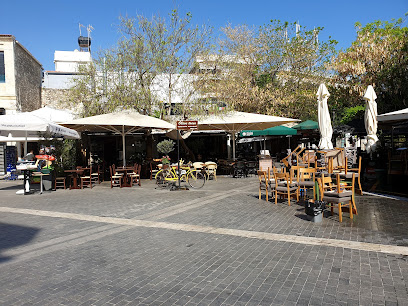
Restaurant
Savor authentic Greek cuisine in the heart of Heraklion at this charming restaurant that delights every palate.

Markets, malls and hidden boutiques
ZARA
Explore contemporary fashion at ZARA in Heraklion, where style meets affordability for everyone.
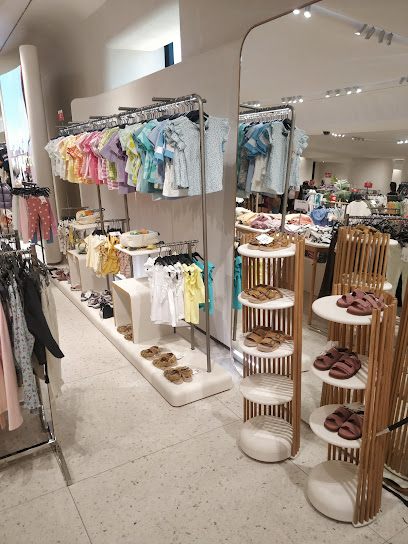
Stradivarius
Explore the latest trends at Stradivarius in Heraklion, a stylish women's clothing store offering fashionable apparel and accessories.
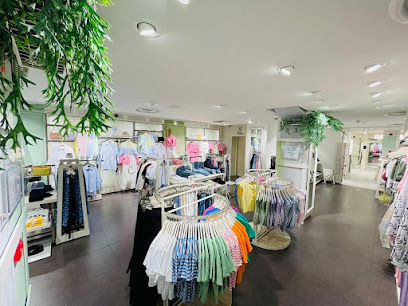
ZALO
Shop for unique Cretan souvenirs and artisanal gifts at ZALO, the heart of Heraklion's vibrant shopping scene.
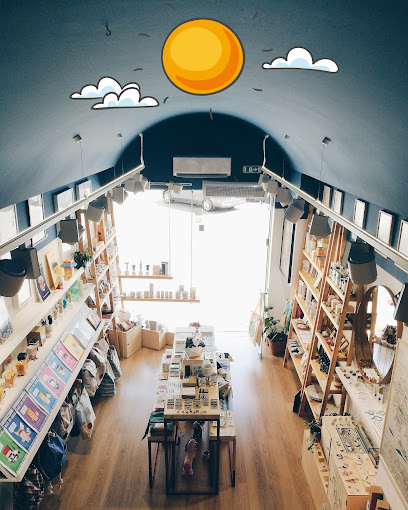
Imatio
Discover stylish men's clothing at Imatio in Heraklion, where quality meets contemporary fashion for the discerning traveler.
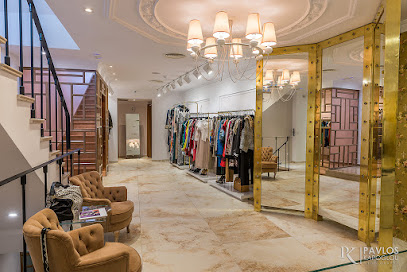
Mayaba Store
Explore the charming Mayaba Store in Heraklion, where unique antiques and gifts embody the spirit of Greek culture and craftsmanship.
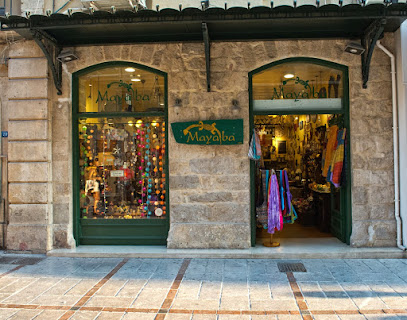
Spirit of Greece
Explore Spirit of Greece for authentic souvenirs and unique treasures reflecting the rich culture and artistry of Greece.
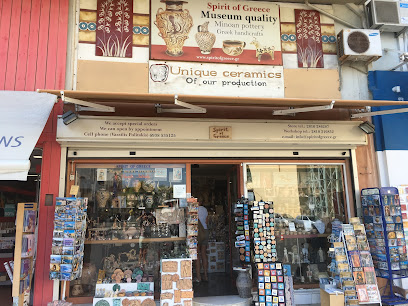
Ble
Explore Ble Gift Shop in Heraklion for authentic Cretan souvenirs and unique handcrafted treasures that capture the essence of Crete.
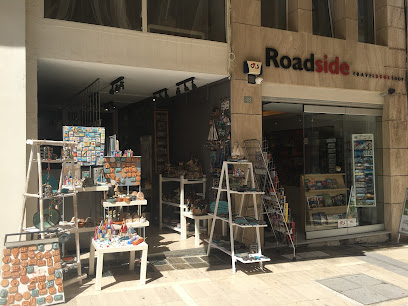
Octapous
Discover unique gifts and local treasures at Octapous, Heraklion's charming gift shop, where every item tells a story of Crete.
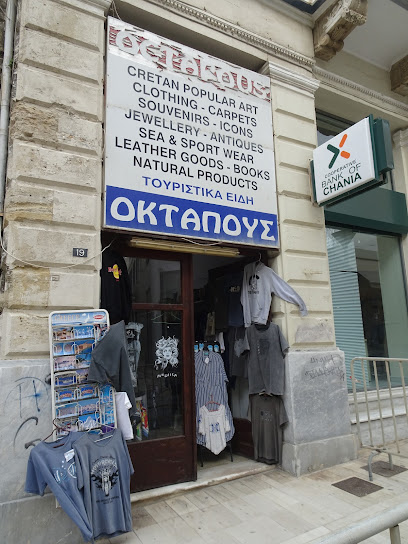
Krasagakis Antique Store
Explore the charm of Krasagakis Antique Store in Heraklion, where unique gifts and timeless treasures await every visitor.
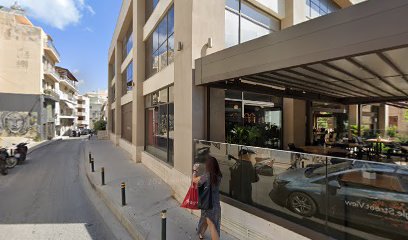
Ilios
Explore Ilios Gift Shop in Heraklion for unique souvenirs and handcrafted treasures that embody the spirit of Crete.
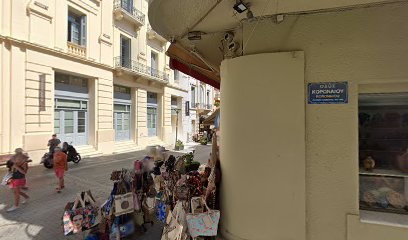
Essential bars & hidden hideouts
Swing Thing
Discover the vibrant cocktail culture of Heraklion at Swing Thing, your go-to bar for innovative drinks and a lively atmosphere.
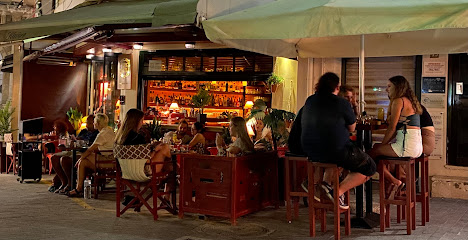
The Bitters Bar
Discover the essence of Heraklion's nightlife at The Bitters Bar, a cocktail haven offering exquisite drinks and a lively atmosphere.
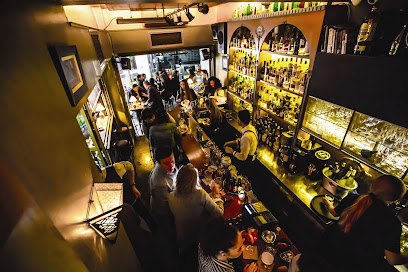
Jailhouse Rock Bar
Experience the vibrant nightlife of Heraklion at Jailhouse Rock Bar, where great rum and live music collide for unforgettable nights.
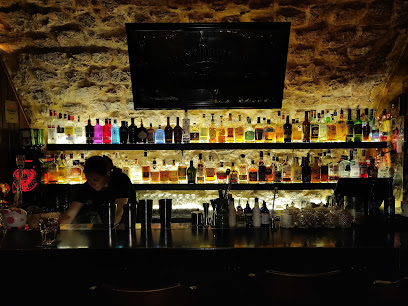
Guernica
Discover Guernica Bar in Heraklion: A vibrant nightlife destination with great drinks, music, and a welcoming atmosphere.
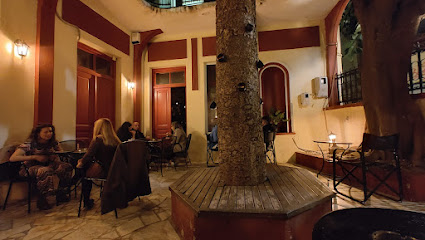
THINK TANK
Experience the vibrant atmosphere and culinary delights of Think Tank, Heraklion's premier bar, cafe, and bistro offering local flavors in a cozy setting.
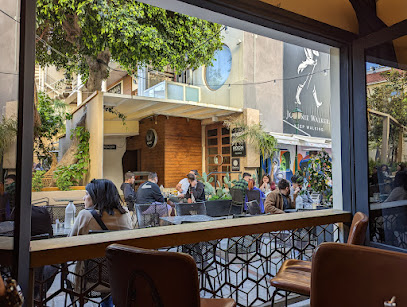
La Brasserie
Discover La Brasserie in Heraklion: A vibrant bar and coffee shop offering exquisite drinks and a lively atmosphere for an unforgettable experience.
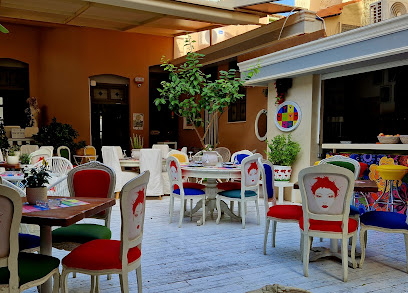
Rock n Rolling Stone
Experience the vibrant nightlife at Rock n Rolling Stone, Heraklion's premier bar for cocktails, music, and unforgettable moments.
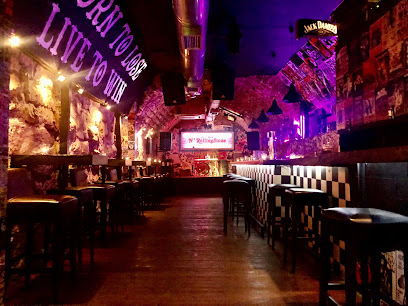
Stone Project
Discover the essence of Heraklion's nightlife at Stone Project, where creative cocktails and a vibrant atmosphere await every visitor.
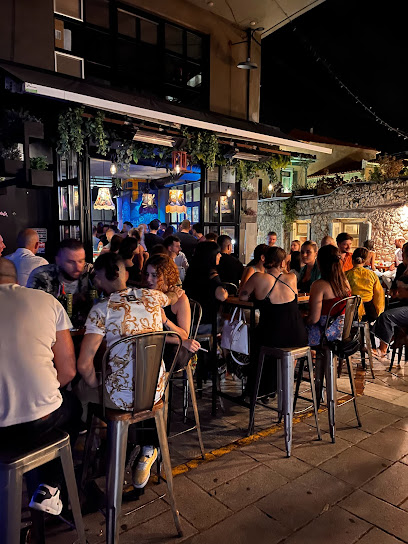
Stylvie Bar
Experience the vibrant nightlife of Heraklion at Stylvie Bar, where the atmosphere is electric and cocktails are crafted to perfection.
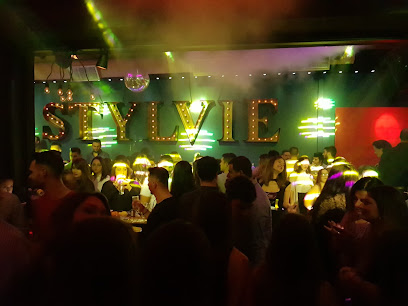
L SQUARE
Discover the lively atmosphere of L SQUARE in Heraklion, a perfect blend of bar, café, and brewery with a vibrant local vibe.
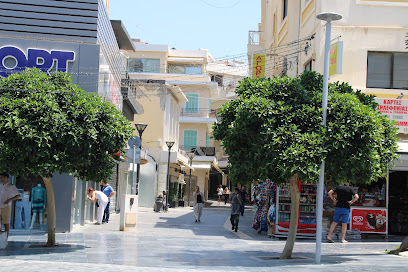
Local Phrases
-
- HelloΓεια σας
[Yah sas] - GoodbyeΑντίο
[Adio] - YesΝαι
[Ne] - NoΌχι
[Ohi] - Please/You're welcomeΠαρακαλώ
[Parakalo] - Thank youΕυχαριστώ
[Efharisto] - Excuse me/SorryΣυγγνώμη
[Signomi] - How are you?Τι κάνεις;
[Ti kanis?] - Fine. And you?Καλά. Εσύ;
[Kala. Esi?] - Do you speak English?Μιλάτε Αγγλικά;
[Milate Agglika?] - I don't understandΔεν καταλαβαίνω
[Den katalaveno]
- HelloΓεια σας
-
- I'd like to see the menu, pleaseΘα ήθελα να δω το μενού, παρακαλώ
[Tha ithela na do to menou, parakalo] - I don't eat meatΔεν τρώω κρέας
[Den troo kreas] - Cheers!Υγεία!
[Yia] - I would like to pay, pleaseΘα ήθελα να πληρώσω, παρακαλώ
[Tha ithela na plirosso, parakalo]
- I'd like to see the menu, pleaseΘα ήθελα να δω το μενού, παρακαλώ
-
- Help!Βοήθεια!
[Voithia!] - Go away!Φύγε!
[Fiye!] - Call the Police!Καλέστε την Αστυνομία!
[Kaleste tin Astinomia!] - Call a doctor!Καλέστε γιατρό!
[Kaleste giatro!] - I'm lostΈχω χαθεί
[Eho hathi] - I'm illΕίμαι άρρωστος
[Ime arrostos]
- Help!Βοήθεια!
-
- I'd like to buy...Θα ήθελα να αγοράσω...
[Tha ithela na agoraso...] - I'm just lookingΑπλά κοιτάω
[Apla kitao] - How much is it?Πόσο κοστίζει;
[Poso kostizi?] - That's too expensiveΑυτό είναι πολύ ακριβό
[Afto ine poli akribo] - Can you lower the price?Μπορείτε να μειώσετε την τιμή;
[Borite na miosete tin timi?]
- I'd like to buy...Θα ήθελα να αγοράσω...
-
- What time is it?Τι ώρα είναι;
[Ti ora ine?] - It's one o'clockΕίναι μία ώρα
[Ine mia ora] - Half past (10)Μισή (10)
[Misi (deka)] - MorningΠρωί
[Proi] - AfternoonΑπόγευμα
[Apoyevma] - EveningΒράδυ
[Vradi] - YesterdayΧθες
[Hthes] - TodayΣήμερα
[Simera] - TomorrowΑύριο
[Avrio] - 1Ένα
[Ena] - 2Δύο
[Dio] - 3Τρία
[Tria] - 4Τέσσερα
[Tessera] - 5Πέντε
[Pente] - 6Έξι
[Exi] - 7Επτά
[Epta] - 8Οκτώ
[Okto] - 9Εννιά
[Ennia] - 10Δέκα
[Deka]
- What time is it?Τι ώρα είναι;
-
- Where's a/the...?Πού είναι ένα/το...;
[Pu ine ena/to...?] - What's the address?Ποια είναι η διεύθυνση;
[Pia ine i diefthinsi?] - Can you show me (on the map)?Μπορείτε να μου δείξετε (στο χάρτη);
[Borite na mou dixete (sto charti)?] - When's the next (bus)?Πότε είναι το επόμενο (λεωφορείο);
[Pote ine to epomeno (leoforeio)?] - A ticket (to ....)Ένα εισιτήριο (για ...);
[Ena isitirio (ya ...)?]
- Where's a/the...?Πού είναι ένα/το...;
History of Lions Square
-
Lion's Square, or 'Plateia Liontaria', is named after the impressive fountain featuring a marble lion that was constructed during the Venetian occupation of Crete in the late 16th century. This square served as a central meeting point for both locals and visitors, showcasing the architectural elegance of Venetian rule and reflecting the influence of Italian Renaissance art on the island.
-
During the 13th to 17th centuries, Heraklion was transformed under Venetian control, which included the establishment of Lion's Square as a focal point for civic life. The square was surrounded by important buildings such as the Church of St. Titus and the Venetian Loggia, promoting a vibrant urban culture that thrived in trade, art, and governance.
-
Following the fall of Heraklion to the Ottomans in 1669, Lion's Square continued to be a significant locale, although it underwent a transformation in character. The square became a melting pot of cultures, where the influences of Ottoman architecture and customs began to blend with the existing Venetian heritage, demonstrating the layered history of the city.
-
In the early 20th century, after Greece gained control of Crete, Lion's Square underwent renovations that aimed to restore its prominence as a cultural and social center. The square became a venue for public events, gatherings, and celebrations, contributing to the local identity and the revitalization of Heraklion's historical significance.
-
Today, Lion's Square remains a vibrant hub in Heraklion, surrounded by cafes, shops, and cultural landmarks. It acts as a testament to the city's rich history, where visitors can enjoy the blend of past and present. The square continues to host various cultural events and festivals, acting as a bridge between Heraklion's ancient history and its modern-day life.
Lions Square Essentials
-
Lions Square is centrally located in Heraklion, making it easily accessible from various neighborhoods. If you are coming from the airport, you can take the KTEL bus service that connects Heraklion Airport to the city center. The journey takes about 20 minutes. Local buses (lines 1, 2, 5, and 6) also connect Lions Square with other neighborhoods like Karteros and Phaistos. If you're coming from the ferry port, it's a short 15-minute walk to the square.
-
Lions Square is pedestrian-friendly, with many attractions within walking distance. Local buses operate frequently, connecting you to other parts of Heraklion. If you prefer cycling, bike rentals are available nearby, and there are designated bike lanes. Taxis are also readily available for longer distances or if you wish to explore further afield.
-
Lions Square is generally safe for tourists, but it's advisable to remain vigilant, especially in crowded areas. Avoid walking alone late at night in less populated streets. The area around the old town can be crowded with tourists, which can attract pickpockets, so keep an eye on your belongings. While there are no specific high-crime areas, exercising caution is always wise.
-
In case of an emergency, dial 112 for police, fire, or medical assistance. The nearest hospital is the University Hospital of Heraklion, located a short distance from Lions Square. It is advisable to have travel insurance that covers medical emergencies. For minor health issues, pharmacies are widely available, and many are open late.
-
Fashion: Do dress modestly when visiting religious sites in the vicinity. Don't wear swimwear outside of the beach areas. Religion: Do respect local customs, particularly in churches or monasteries. Public Transport: Do give up your seat to the elderly. Don't eat or drink on buses. Greetings: Do greet with a friendly 'Kalimera' (Good Morning). Eating & Drinking: Do try local Cretan delicacies at nearby tavernas. Don't refuse food or drink offered by locals, as it may be seen as impolite.
-
To experience Lions Square like a local, visit the cafes around the square for a traditional Greek coffee. Engage with local vendors at the nearby market for fresh produce and artisanal goods. Check out the local schedule for cultural events or festivals that may be happening during your visit. For a quieter experience, explore the narrow alleys leading away from the square, where you can find charming shops and hidden gems.
Nearby Cities to Lions Square
-
Things To Do in Crete
-
Things To Do in Rethymno
-
Things To Do in Chania
-
Things To Do in Pyrgos
-
Things To Do in Santorini
-
Things To Do in Mykonos
-
Things To Do in Kos
-
Things To Do in Bodrum
-
Things To Do in Rhodes
-
Things To Do in Samos
-
Things To Do in Athens
-
Things To Do in Nafplio
-
Things To Do in Marmaris
-
Things To Do in Kalamata
-
Things To Do in Kusadasi








